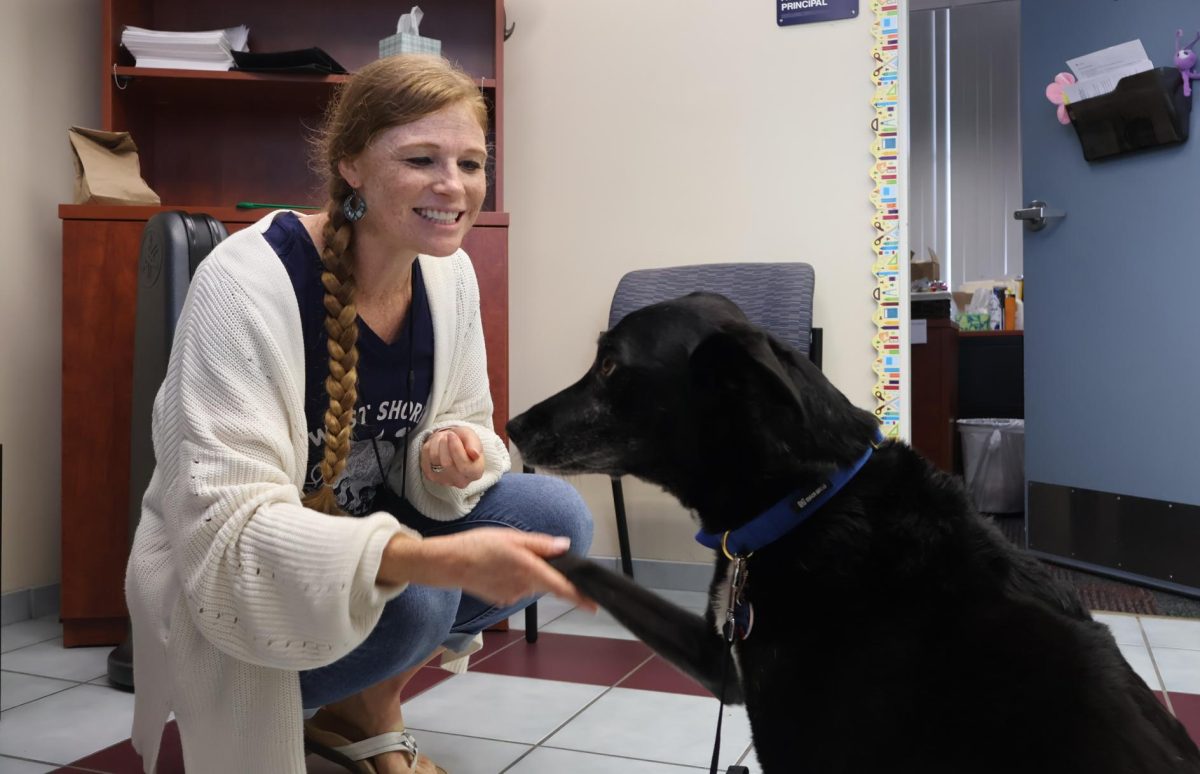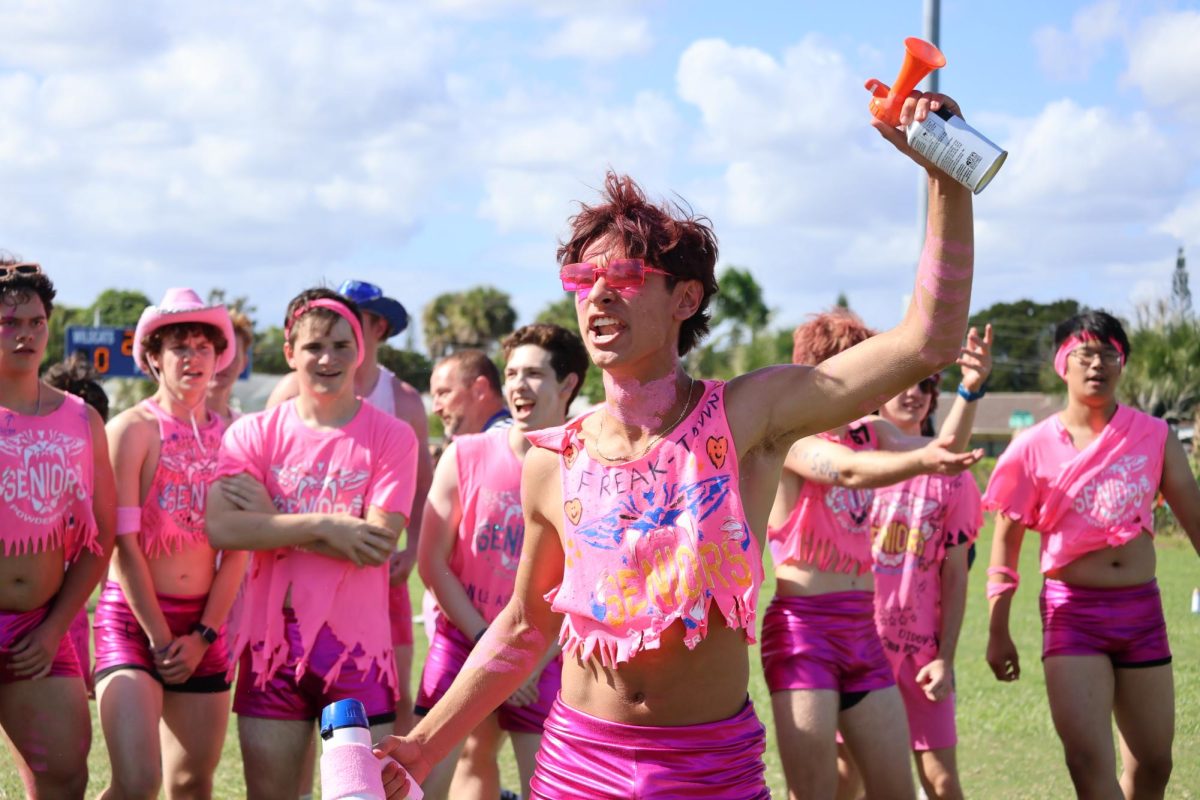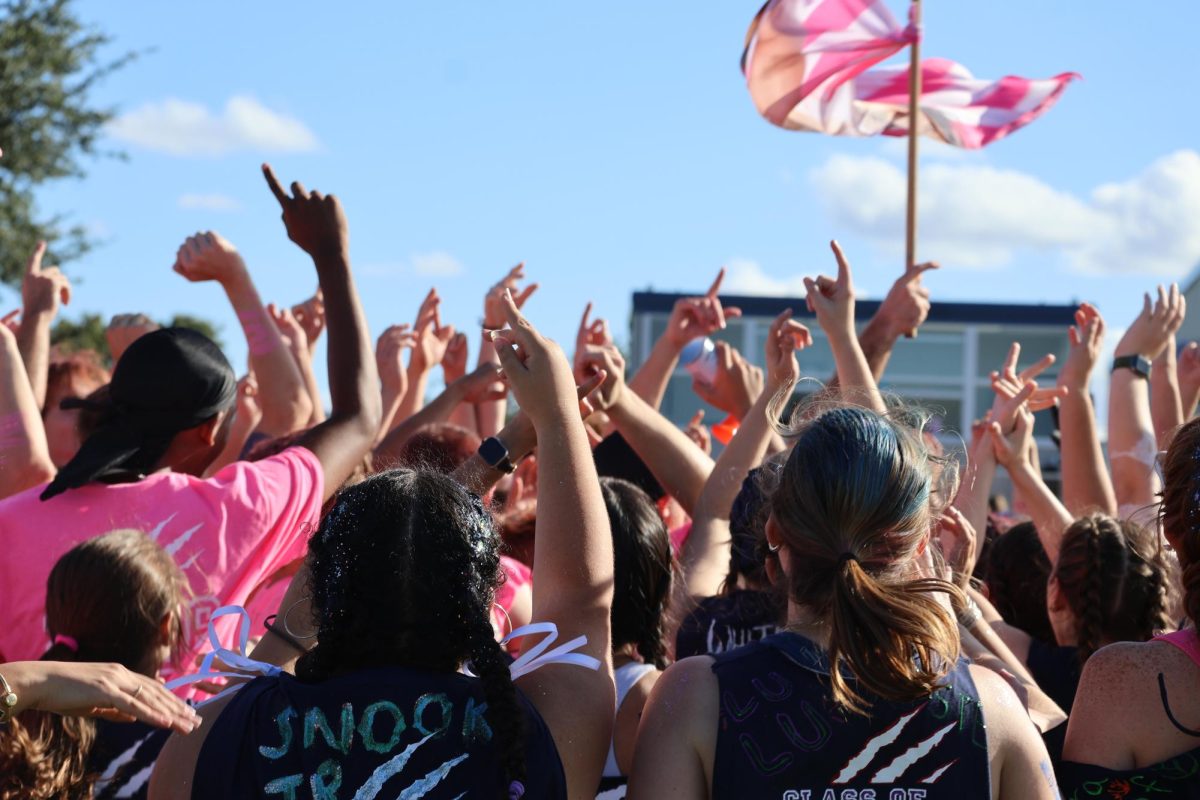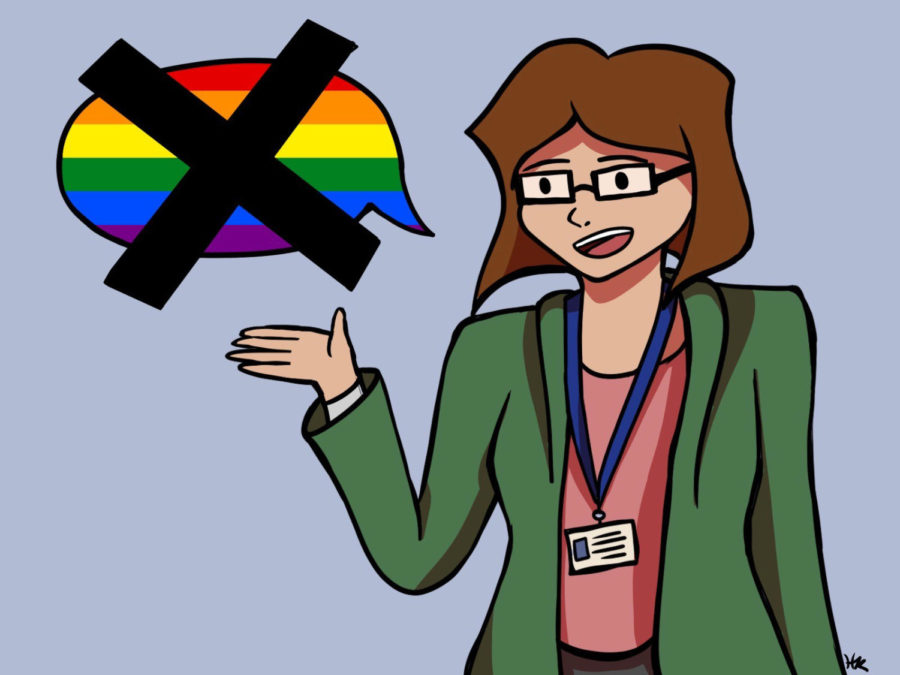Law Ends Sexuality, Orientation Discussion
June 8, 2023
Gov. Ron DeSantis has signed into law House Bill 1557, which prohibits discussion of sexuality and gender orientation within Florida’s K-12 classrooms. With a unanimous vote, the State Board of Education extended this law from its original K-3 form for parents to become an “integral part” of education. The sponsor of the bill, Florida State Rep. Joe Harding, said it seeks to improve student health and development.
“This is about protecting our kids, empowering parents and ensuring they have the information they need to do their God-given job of raising their child,” Harding told Fox News. “A school having a curriculum that teaches gender and sexual orientation is just not age appropriate.”
Last year, senior Shane Winsten led a walkout and speech in protest of the original K-3 bill. He said exposing young children to ideas involving gender and sexual identity is essential.
“Especially in today’s climate, [gender and sexual identity] is a topic that should be addressed and regulated, but not banned,” Winsten said. “It’s a conversation about why, when and how we introduce those ideas to children. There’s clear research that shows that sexual education can improve overall mental health and well-being. That same logic can be applied to LGBTQ issues.”
Junior Class President Rosalina Rodriguez said that, as a transgender female, seeing the law was no surprise, considering there have been 540 anti-LBGTQ bills filed in the United States this year.
“My heart kind of sunk,” Rodriguez said. “It’s like they’ve got their foot in the door, and now they’re trying to push their beliefs everywhere. You can’t say you’ve banned sexual orientation, that’s just ridiculous. We should focus onto something other than gay people existing that’s actually affecting our children.”
Junior Claire King, a member of the LGBTQ community, also has concerns about the law.
“The attempt is to stop children from having their own freedom of expression and from figuring themselves out,” King said. “When you suppress homosexuality and demonize it, many horrible incidents like homophobia, murders and suicide happen from a fear of what they are instead of accepting and loving themselves. It’s not OK to feel like you can’t speak about your identity or who you are as a person.”
King said the purpose of the law is to marginalize students and exclusively harm LGBTQ minorities in school settings.
“This is supposed to be America, the land of the free,” she said. “We should all be free. You can’t just pick and choose groups of people to have freedom. They’re going against the basis of the United States and by creating strict and destructive rules.”
Junior Asher Carver, on the other hand, said there’s “a time and place” to share and learn about sexuality and gender identity.
“Sexuality is something to be kept private,” Carver said. “Education is about learning true information. There needs to be an age gap between when you learn these ideas. It’s not on the school system to teach that. People can learn that individually.”
One of the main aspects of the law is to regulate classroom discussion. Teachers who don’t follow these regulations could face suspension or revocation of their licenses. With their licenses on the line, physics teacher Joseph Estevez said the law has created concerns for educators.
“There’s no definition of what ‘classroom instruction’ nor ‘age/developmentally appropriate’ means,” Estevez said. “This law begs for litigation and will be historically renowned for tearing down authority in schools. Our society depends on our ability to trust law enforcement to protect, educators to instruct, doctors to save and engineers to design. If we can’t trust the experts to do their honest best in their respective lanes, I can’t imagine the world we’re leaving to the future generations.”
The law will take effect when student return to class in August. With limited time for educators to interpret it, Principal Rick Fleming said he’s struggling to navigate enforcement without violating the legislation.
“Whenever I walk into a math class, you see students sit up straight,” Fleming said. “When that door closes and discussion occurs, I can’t moderate it. Our students need to make sure they feel our support, that they can use their voices and that they know that they are heard, but I also can’t to violate the law and put a teacher into a rough spot.”
Regardless of the anticipated challenges Florida schools may face, Fleming said he’s confident West Shore students and faculty members will remain supportive and accepting of one another.
“I mean, let’s face it: there are gay people in society, and there are gay people in our schools,” Fleming said. “We have to respect all people as a society and as a school, but we also have to respect the law. It’s a challenging time for us as a community. But, here at West Shore, we’re going to navigate anything that comes our way.”



![Sophomore Isabelle Gaudry walks through the metal detector, monitored by School Resource Officer Valerie Butler, on Aug. 13. “I think [the students have] been adjusting really well," Butler said. "We've had no issues, no snafus. Everything's been running smoothly, and we've been getting kids to class on time.”](https://westshoreroar.com/wp-content/uploads/2025/08/IMG_9979-1200x800.jpg)












































